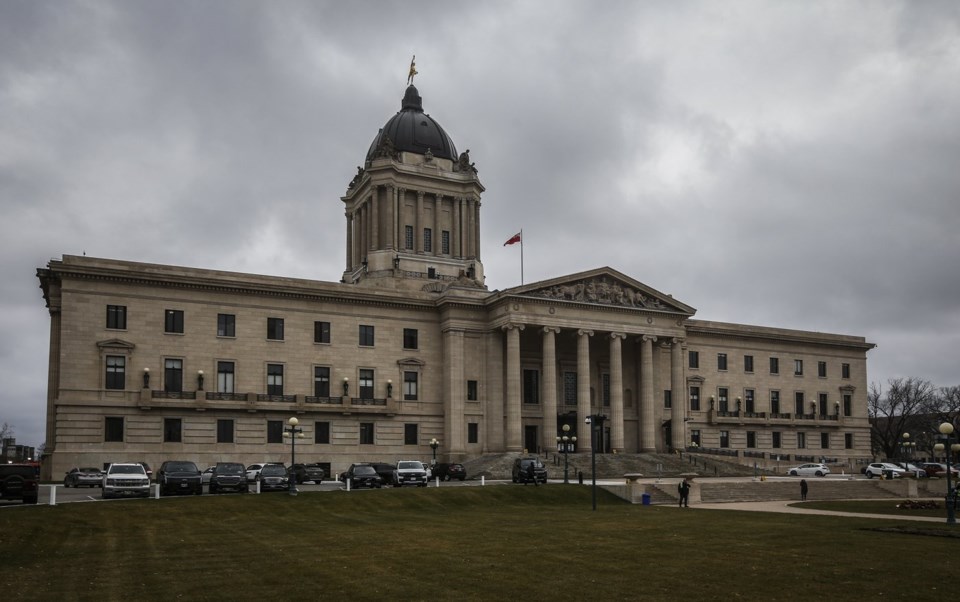WINNIPEG — Manitoba politicians reached a deal to speed passage of a free trade bill Monday, hours before the legislature was to break for the summer. More than 30 other bills were also set to be approved on the last day of the spring sitting.
The trade bill, based on a deal with Ontario, would remove trade and labour barriers for some goods and services between Manitoba and other jurisdictions that pass similar laws. Other provinces have recently joined the effort, as part of a national plan to boost the economy and respond to tariffs imposed by the United States.
The NDP government wanted the bill passed quickly, without public hearings that are normally mandatory in Manitoba, in time for July 1.
The Opposition Progressive Conservatives initially rejected demands to quickly approve the bill and unsuccessfully proposed amendments they said would have broadened it. One Tory proposal would have reduced the number of provincial Crown corporations exempt from freer trade requirements. It was rejected by the NDP.
Tory Leader Obby Khan had also hoped for a compromise that would have seen the NDP agree to pass some Tory bills in exchange for fast-tracking the trade bill. He didn't get that promise, but agreed to pass the trade bill anyway.
"These are unprecedented times we are facing," Khan told reporters Monday.
"Regardless of your political stripe, we must stand shoulder to shoulder against (U.S. President Donald) Trump's tariffs and for a stronger Canada."
Among the dozens of other bills headed to final approval Monday night was one to add gender expression to the human rights code — a move that would include protections for people to be called by their preferred pronouns. The bill, similar to laws already in place in most other provinces, met with a mixture of praise and opposition at public hearings.
Another bill would change highway traffic laws to impose new minimum distances for drivers to maintain when coming across snowplows and emergency vehicles. A change to the Public Health Act would eliminate the option of putting people with communicable diseases in jail, and divert them to a hospital or other health facility instead.
The Public School Act was amended to expand school nutrition programs across the province.
"We're incredibly proud of the work that we've done," NDP house leader Nahanni Fontaine said.
The government did not get all of its legislative agenda passed, however.
A bill to enact tax changes announced in the spring budget, including a change to personal income taxes that will no longer raise tax brackets in line with inflation, will not pass until after the legislature reconvenes in the fall.
The Tories used their right under house rules to hold back five other bills for further debate when the legislature resumes.
One bill includes several proposed changes to observances at schools. O Canada would have to be sung daily, and a little-used provision that required God Save the King to be played would be eliminated. The Tories said the bill would remove the royal anthem as an optional patriotic observance.
Another bill held back until fall would lower political donation limits and require political parties to have a code of conduct for election advertising. A third bill would forbid liquor licences in urban convenience stores and gas stations — a move the Tories say will affect small businesses and customer choice in the few locations where such licences have been issued.
The fall legislature sitting is scheduled to start Oct. 1.
This report by The Canadian Press was first published June 2, 2025.
Steve Lambert, The Canadian Press



